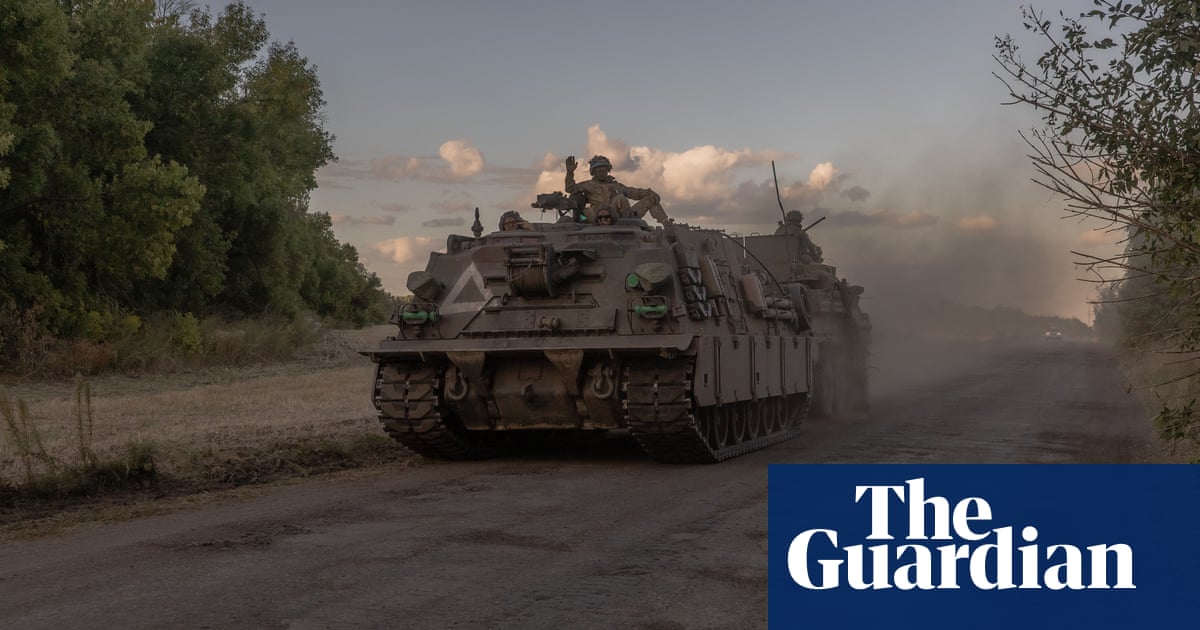
What’s happening with the Ukrainian incursion into Russia and how far has it gone?
On August 6, Ukraine launched a surprise armoured and infantry advance into Russia’s Kursk and Belgorod regions, involving thousands of troops from 14 brigades. While initial details of the offensive were vague, Kyiv and Moscow have now acknowledged the operation in Russian border areas, while independent analysts have verified claims about the scale of the advance by geolocating images released by Ukrainian forces.
This video shows Ukrainian soldiers raising the Ukrainian flag in Givo, and lowering the Russian flag from a building in Darino:
In his first public comment on the operation, Ukraine’s top military commander, Gen. Oleksandr Syrskyi, claimed on Monday that Ukraine now controls about 1,000 square kilometers (386 square miles) of the territory.
That claim has been largely confirmed by the Russian side. Alexei Smirnov, the acting governor of the Kursk region, told Russian President Vladimir Putin via video conference on Monday that Ukrainian forces had taken control of 28 Russian settlements, including towns and villages up to 18 miles (30 kilometers) inside Russia.
Footage from outside the village of Glushkovo in Kursk showed damage to a bridge across the Seim River:
A video from the Belovsky district of Kursk showed damage to cars and roads:
Despite claims by Russian military bloggers on Sunday that the situation had stabilized, new incursions were reported west of Kursk, northwest of the Ukrainian city of Sumy.
According to the Institute for the Study of War, geolocated footage showed Ukrainian forces operating in Sudzha and north of Zawlyshenka recently. Some Russian bloggers have claimed that Ukraine has taken control of Sudzha.
Footage posted on social media showed ambushes targeting rival forces around Sudzha, including Ukrainian forces in the village of Jiri.
The Institute for the Study of War said its assessment was that Ukrainian forces had not captured all the territory “within the maximum” of the advances they claimed.
Smirnov said that 121,000 people were evacuated from their homes in the Kursk region, while 11,000 people were evacuated from the Belgorod region.
What kind of resistance did Ukraine face?
Although Ukraine has previously launched several small incursions and sabotage raids into Russian border areas, the scale of this incursion caught Moscow by surprise, and it initially found it difficult to respond to the attack.
Since the end of last week, Moscow has declared a comprehensive anti-terrorist operation in Kursk and two other border regions. The Russian Defense Ministry said on Sunday that its forces were fighting Ukrainian forces “in the areas of the settlements of Tolbino, Zhuravly and Opshi-Kolodz.”
After promoting the newsletter
Russian Foreign Ministry spokeswoman Maria Zakharova said that a tough response from the Russian armed forces “will not take long.”
The Russian Defense Ministry said its forces also thwarted an attempt by Ukrainian mobile groups to penetrate deep into Russian territory near Kavushuk.
Belarus, an ally of Russia, said it was increasing the number of troops on its border after it alleged that Ukraine had entered its airspace with drones.
The hardest phase of the Ukrainian incursion is likely to begin now as Russian reserves enter the fray, said Pasi Paroinen, an analyst at the Finland-based open-source intelligence agency Blackbird Group, which monitors the war.
Why is Ukraine doing this?
While the Ukrainian operation is kept secret and its goals remain unclear, the advance brings Kyiv’s forces closer to key supply lines inside Russia that support the ongoing Russian offensive in eastern Ukraine.
The town of Sudzha in Kursk is also the site of the only pumping station for Russian natural gas reaching Europe via Ukraine.
Ukrainian President Volodymyr Zelensky said Sunday that the incursion was aimed at “putting pressure on aggressor Russia” and pushing “the war into the territory of the aggressor.” Zelensky said the thousands of strikes on Ukrainian territory launched from Russia’s Kursk region deserved a just response.
Putin said at a meeting on Monday with top security and defense officials that the attack appeared to reflect Kyiv’s attempt to gain a better negotiating position in possible future talks to end the war.
Putin added that Ukraine may have hoped the attack would cause public unrest in Russia, but failed to do so. He claimed that the number of volunteers to join the Russian army had increased because of the attack.
“It is obvious that the enemy will continue its attempts to destabilize the situation in the border area, to try to destabilize the internal political situation in our country,” Putin said. He added that Russia’s main task is to “drive the enemy out of our territory, work with the border troops to ensure reliable coverage of the national border.”

“Travel specialist. Typical social media scholar. Friend of animals everywhere. Freelance zombie ninja. Twitter buff.”





More Stories
Taiwan is preparing to face strong Typhoon Kung-ri
Israel orders residents of Baalbek, eastern Lebanon, to evacuate
Zelensky: North Korean forces are pushing the war with Russia “beyond the borders”